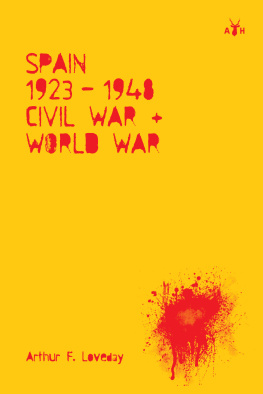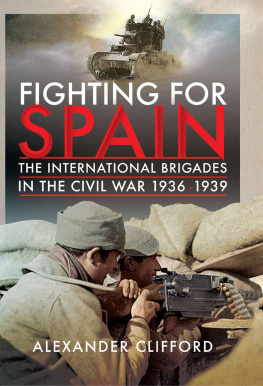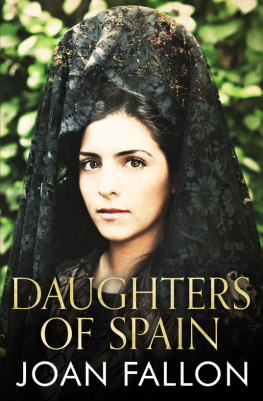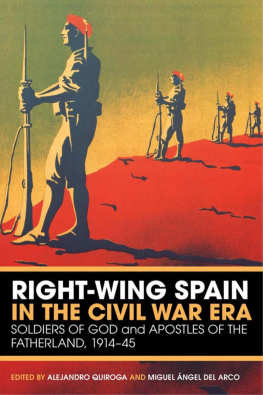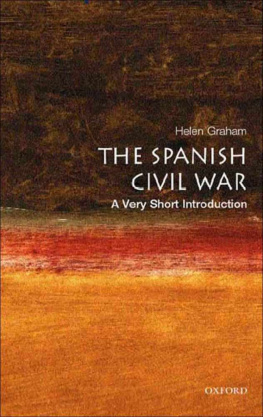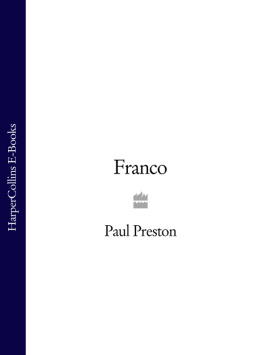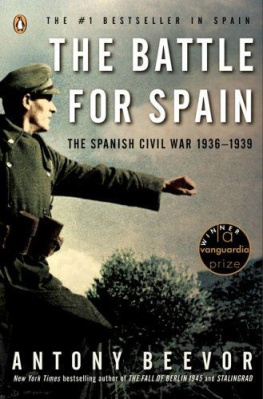SPAIN 1923 1948
Civil War and World War
By Arthur F. Loveday, O.B.E
Copyright 2020
Printing 2020
All rights reserved.
The content of this work is in the public domain.
The foreword is the intellectual property of its author.
Cover art by Anita Hudojnik
The publisher can be contacted at
Antelopehillpublishing.com
Table of Contents
PUBLISHER FORWARD
By ANTELOPE HILL PUBLISHING
This book is being re-issued in 2020 seventy-two years after its original release in 1948, because it is of historical interest. Arthur F. Loveday wrote this book as a revisionist work aimed at revising the view of Spain and the Franco administration, specifically its conduct during the Spanish Civil War, in Britain. His chief aim was to help the entry of Spain into the post-war Allied framework. More specifically, into NATO membership. The reader will discern that he crafts a narrative of a Falange made up of converted left-wingers that was used by Franco and various factions of Spanish traditionalists (in most cases monarchists) during the Civil War and gradually purged of its ideologues during the World War years. The effect of this is to distance Franco from the shadow of Fascism while making an alliance with Francos reactionary Spain appealing to the British public in light of the growing hints of the Cold War that was to come.
Foreword by Sir R. M. Hodgson
It is a real pleasure to write a Foreword to Mr. Loveday's book and that for the best of reasons. In the first place he has a knowledge of Spanish mentality and of Spanish affairs generally such as few foreigners succeed in acquiring. As Chairman of the British Chamber of Commerce in Spain and as Correspondent of The Morning Post he has had contact with persons in all walks of life and, besides being singularly well-informed, he is most reasonable and objective in his outlook. Then at the present moment we are all chattering about the vital necessity of achieving Western Union. Surely this is the time for challenging the justice of Spain's continued exclusion from U.N.O.; of her persistent blackballing whenever the question of cancelling the decision of December. 1946, is raised, as well as of the refusal to allow her to adhere to E.R.P., though her need of Marshall Aid is unquestionably urgent, and all other candidates, the Soviet Union among them, were cordially welcomed. Mr. Loveday is eminently qualified to argue the Spanish case in a manner which promises to dispel the atmosphere of ill-informed hostility by which it is still surrounded. And now is the moment for doing so.
This is no place for raising the various issues that must be studied if a dispassionate appreciation of the Spanish enigma is sought. I would, however, stress most strongly that, despite the belief to the contrary prevalent in England at the time, the movement in which in July, 1936, General Franco took the lead, had the support of the majority of the Spanish people; further, that our antagonism to it markedly increased its standing in a xenophobe Spain. Even in the Basque Provinces, believed to have been in alliance with "The Loyalists sympathy with the Nationalist cause was in fact general. Navarre and Alava nearly to a man were in favor of Franco, while in Vizcaya and Guipuzcoa important minorities were of the same way of thinking. A region which had produced Ignatius Loyola, Francis Xavier and other eminent ecclesiastics could not have much in common with an atheistic dispensation which murdered priests and destroyed its churches.
Another point to be borne in mind is that our condemnation of the Nationalists for having recourse to German and Italian aid in the field for which, incidentally, they paid heavily in cash-is grossly illogical in face of the very considerable assistance rendered to The Loyalists" by other countries, notably by France. Not only were the International Brigades organized and equipped with the sanction of the Blum Government sire of non-intervention in French territory, but some 20,000 to 30,000 trained French soldiers took part in the Civil War. Our participation was numerically unimportant, though Mr. Attlee lent distinction to it by giving his name to the British unit, while Germans, Americans and other nationalities contributed considerable quotas. The Russian contingent was small but was composed of technicians airmen, motor-mechanics, drivers and so forth, while Soviet propaganda was incredibly active. In all, the International Brigades numbered at least 70,000 and fact which we are prone to forget they arrived in Madrid a month or two before the Germans and Italians arrived in Nationalist Spain. The second event was the logical sequence to the first. There are other grievances which Nationalists can quote to our detriment. Our refusal to concede to them belligerent rights was in contradiction to the accepted principles of International Law, while the terms of the non-intervention agreement which we substituted for them were flagrantly disregarded by nearly all the signatories. Again, our tardiness in granting de jure recognition to the National Government was a fruitful source of soreness, for it entailed the prolongation of the war to no purpose. Nor was our insistence in styling the Nationalists The Insurgents at a time when practically the whole of Spain was in their hands the embodiment of tactfulness.
Turning to subsequent events to the days of the World War "Wartime Mission in Spain," by Mr. Carlton Hayes, American Ambassador in Madrid, is a book which all should read who wish to have a balanced view of the behavior of the Spanish government in those difficult days. It confirms that the wish of the great majority of the Spanish people was to abstain from involvement in the World War, to avoid the recurrence of civil war and to reach a friendly understanding with the English-speaking democracies, especially with the United States. Another tribute was paid by Mr. Churchill in the shape of the "kindly words" he spoke in the House of Commons, on May 25th, 1944. Surely it is time we abandoned the contention that the continuation of the present regime constitutes "a potential menace to world peace and made up our minds to reach agreement with a State which entertains friendly dispositions towards us and whose co-operation may be a useful factor in the achievement of Western Union. As for the projects of creating Spanish governments in exile headed by republican leaders of the caliber of Martinez Barrio or Jose Giral, which received a measure of support here, it is hard today to believe that anyone should have taken them seriously. The vital fact that we have to bear in mind in relation to Spain is that Franco on his own initiative refused to listen to Hitler's remonstrances and to plunge the country into the world holocaust. Had he done otherwise. Spain would have been overrun, Gibraltar taken and our access to the Mediterranean cut off.
The position today is that by the inevitable process of events, a gradual modification in the unreasoning hostility of public opinion here towards the present Spanish regime is coming into being. That it has the support of over 70% of the population is now freely admitted. Lord Hinchinbrooke's speech in Madrid on October 21st, with its statement that: "The majority of the British Conservative Party would like to see a normal diplomatic situation resumed between Spain and Britain. The whole Conservative Party would welcome Spain's inclusion in the Marshall plan, provided other countries allocations are not cut." is evidence that a more sensible frame of mind in regard to the Spanish problem is coming into being. So, especially in view of the relatively broad-minded attitude the American authorities are adopting, we can look forward confidently to a continued improvement in public opinion here.
With this background, Mr. Loveday's book promises to appear at a moment when it will exercise a salutary influence on the development of events. Lack of understanding in the past has been largely responsible for our antagonism towards a system of administration which was no concern of ours and which the majority of Spaniards approved. Today we have plenty of troubles of our own to bother about and elementary principles of commonsense demand that we allow Spain to work out her own salvation, and indeed that we lend her a kindly hand when possible. It is my firm belief that Mr. Loveday's book will aid potently in bringing about a relationship which both parties will applaud.
Next page
